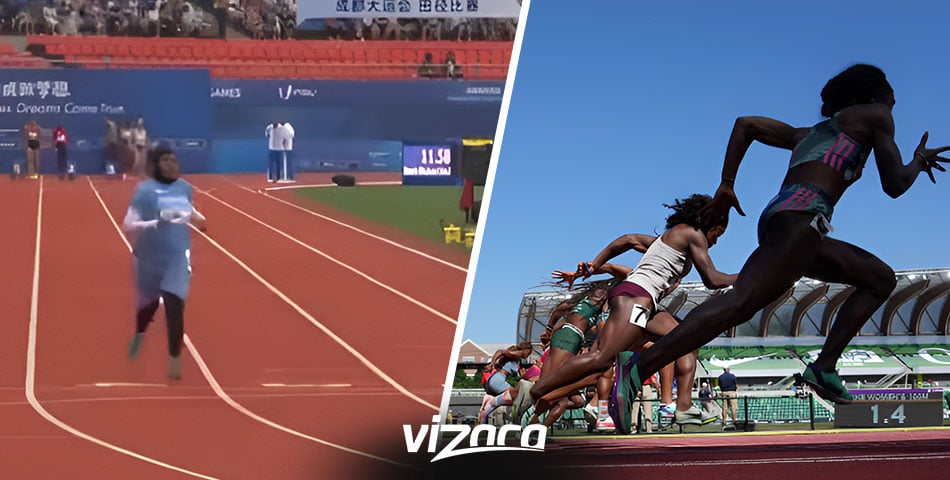The Somali sprinter video of Nasra Ali Abukar’s slow performance has been widely circulated on social media platforms.
Participating in the 100 meters race at the World University Games, Abukar’s performance fell short, finishing significantly behind the other runners.
The incident has drawn attention to her slow performance and the controversial reason behind her selection as a representative for her country.
Upon delving into the matter, it has come to light that Abukar’s selection was solely due to her relation to the Vice President of Somali Athletics.
This revelation raises concerns about favoritism and corrupt selection processes. It has sparked discussions about fair and transparent practices in sports selection.
Mục lục
Abukar’s slow performance at the World University Games
Nasra Ali Abukar competed for Somali in the 100 meters race at the World University Games held in China and posted a time of 21.81 seconds, which was too slow compared to other runners.
The Somali sprinter video went viral on social media platforms and sparked controversy over the athlete’s capability at an international level.
It was evident right from the start that Abukar lacked the explosive start required for a sprinter, and within a couple of strides, it was evident that she was in trouble.
She finished full ten seconds behind the other runners, and it was apparent that she was not competitive.
Selection for the race
The selection of Nasra Ali Abukar to represent Somali at the World University Games caused significant controversy.
It was revealed that the only reason for her selection was her relation to the Vice President of Somali Athletics, Khadija Adan Dahir.
This nepotism has raised concerns over the Somali athletic program’s corrupt and incompetent selection processes.
The incident could have been avoided if someone with adequate running capability had represented the country. This incident has doomed the sprinter’s international career.
The negative impact of Nepotism in Sports
Nepotism in sports is not a new phenomenon but similar to any other profession.
The practice of nepotism in sports affects fairness, merit, and transparency, and it can have an adverse impact on the performance and image of the sports organization.
It can also damage an athlete’s career prospects by preventing them from getting fair opportunities.
The Somali Athletic Program is not isolated, as similar incidents have been reported in other sports and countries worldwide.
Nepotism is a significant hurdle in creating a sports world on merit, transparency, and credibility.
Final thoughts
The case of Nasra Ali Abukar’s slow performance display heightens the issue of nepotism in sports.
It not only tarnishes the image of Somali Athletics, but it also questions the credibility of its selection process.
The incident has exposed the irregularities of the selection process and the need for implementing a fair, transparent, and merit-based system.
Integrity, transparency, and credibility are essential aspects of any sports program, and nepotism is a threat to them.
It is high time that sports-related organizations take a step forward to eradicate such practices and maintain fair and merit-based competition.

